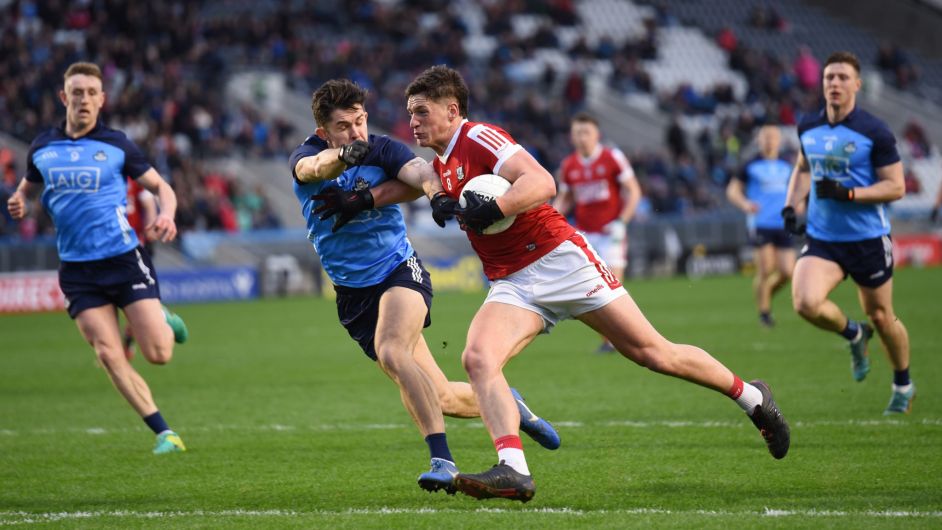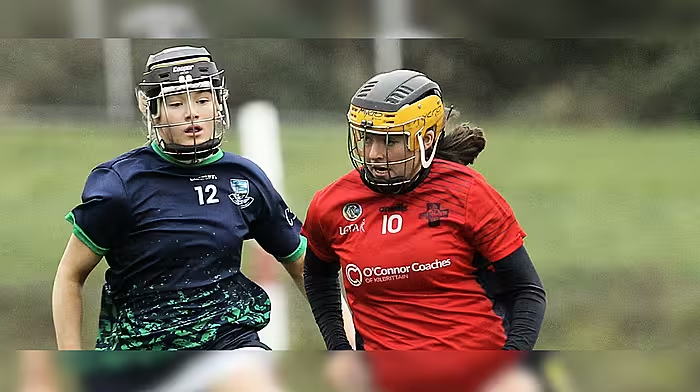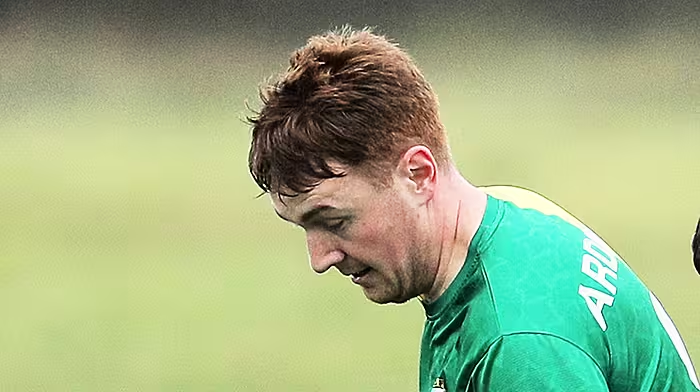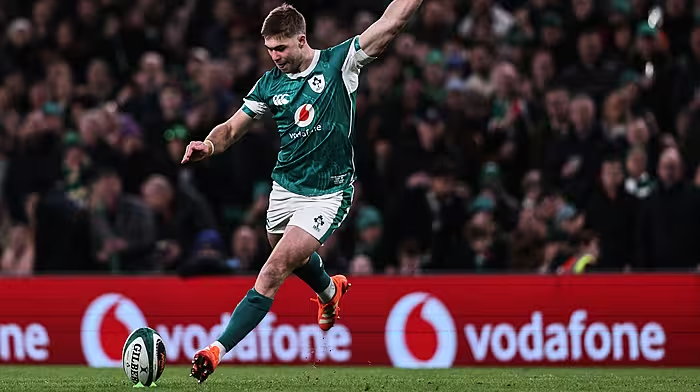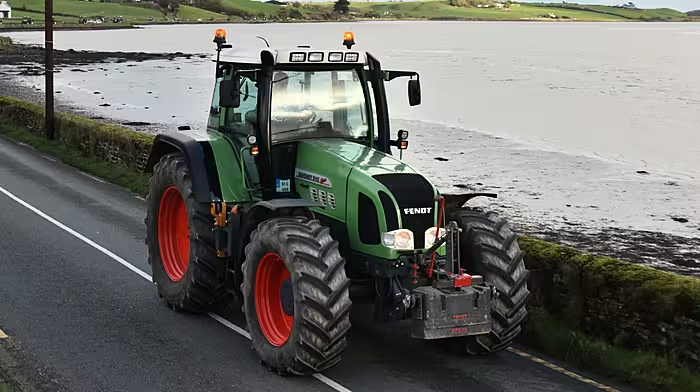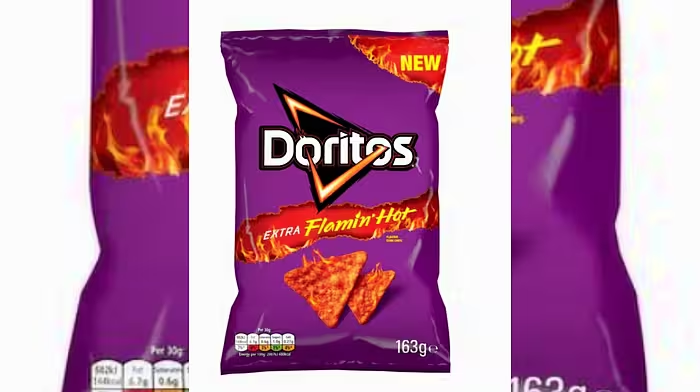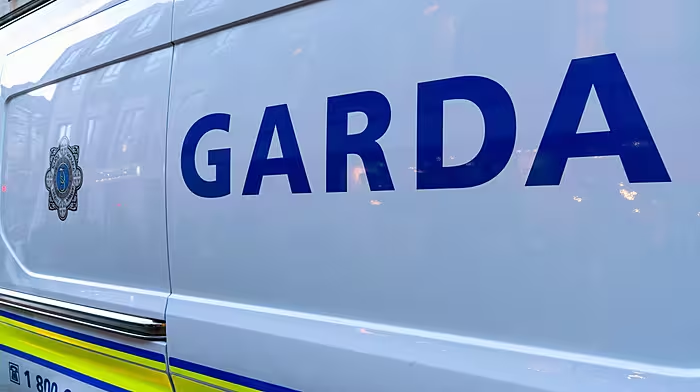
FOR Cork, last Sunday’s clash with Dublin was a moral victory of sorts in a great game of football which unfortunately was dominated by – and almost ruined by – the referee.
Cork lost out to Dublin (0-18 to 2-10) by the width of the crossbar after Brian Hurley’s last-ditch effort to salvage the two points at Páirc Uí Chaoimh shook the woodwork. One could see by the players’ body language after the game how disappointed they were, which also shows the belief and positivity that now lies within the group.
Cork built on the Kildare performance and ran one of the fancies for the All-Ireland all the way. Last year in the quarter-final, Cork stayed with Dublin for 50 minutes before the men from the capital opened up to run out 11-point victors. This time it was a different story, taking into consideration obviously that Dublin still have household names to return. At the end of this league campaign, will we all be looking back at the Meath game and that poor second-half showing when we talk about teams being promoted to Division 1?
In a game where there was hardly a foul stroke, there were 29 frees, ten yellow cards and two red cards. If the standard of refereeing carried out by Séamus Mulhare from Laois is any kind of window for what is to come in this year’s championship then it is worrying times for the GAA in general. Now, we all know that a lot of the GAA’s rules are open to interpretation but that is where common sense comes in. A referee, reffing to what he thought the assessor wanted in the stand, came very close to ruining what was a highly entertaining and enjoyable afternoon at Cork’s headquarters.
The sending-off of both Ian Maguire and Lee Gannon can only be categorised as soft. Granted, the referee will argue that Maguire was ticked before his first yellow, which in my eyes wasn’t even a foul. The Dublin player could easily have been blown for barging as he led with the shoulder aggressively into Maguire’s chest. The second yellow was for a slight jersey pull as Maguire tracked Dean Rock deep into defence. The fact that Maguire had to be told by the players around him that he had received a second yellow followed by red says enough.
Lee Gannon’s red ten minutes later, after he stood his ground to meet Powter on the shoulder, was not quite as innocuous but still not a sending-off. The two square balls – one in the first half denied the superb Maurice Shanley a fisted goal, the other in the second was a high crossfield ball that O’Callaghan actually fetched outside the small rectangle. On replay, Shanley actually had one foot on the line and the other outside.
In that intervening ten minutes, between the 38th and 48th minutes, after Maguire got his marching orders, Dublin had scored five points and looked to be pulling away. There was a bit of a feeling of the ref evening things up a bit as the crowd booed ferociously following the Gannon/Powter incident. Even more perplexing was the fact that Dublin scored from the ensuing play and the point wasn’t cancelled after Mulhare came back to deal with the incident. Back to 14 v 14 and game back on.
With both sides conceding the kickout, there was plenty of cover on both ends to try to stymie the dangermen on both sides. But still both sides were patient enough when needed and fast enough when the opportunity presented itself to rack up some tremendous scores.
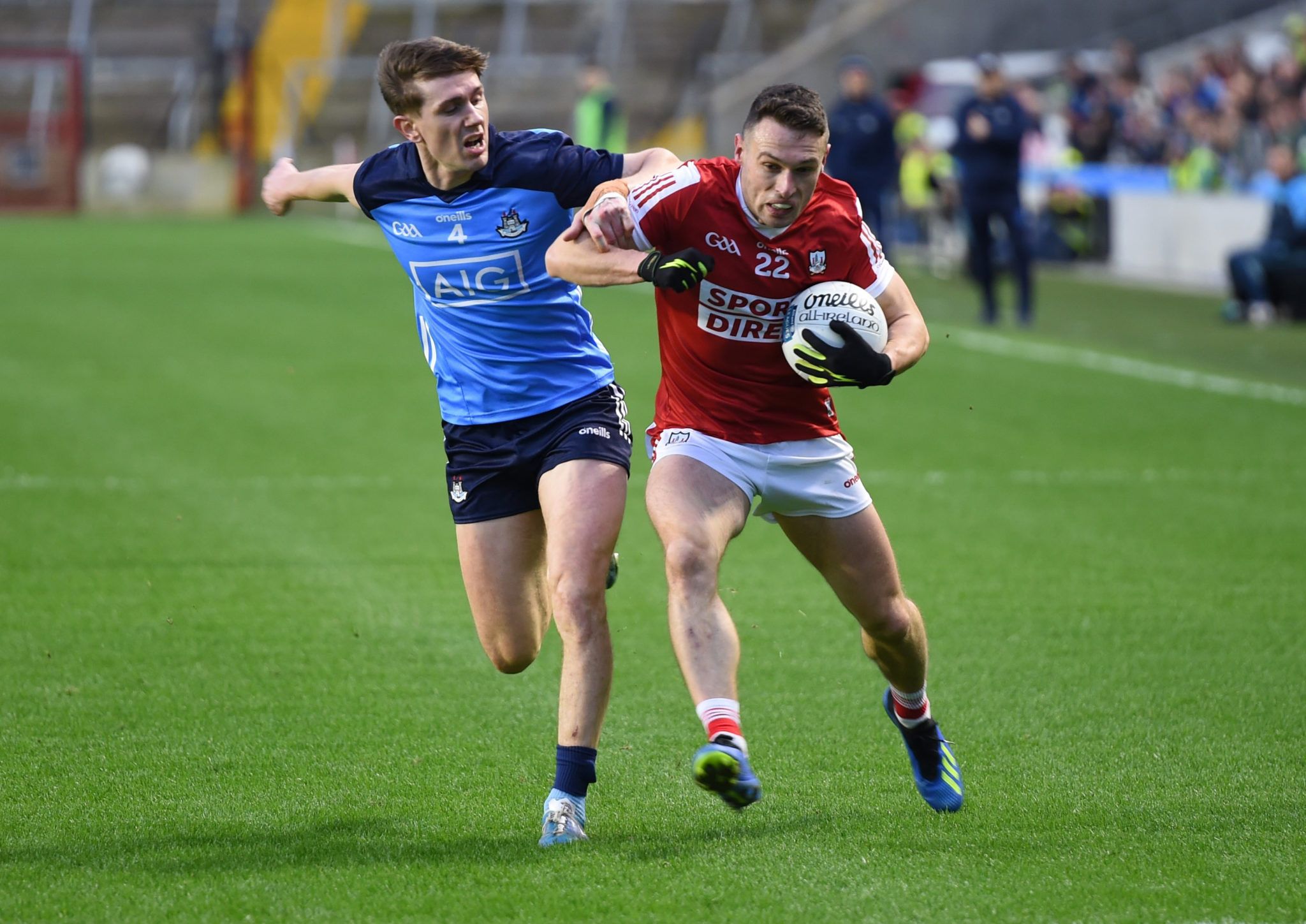 Cork's John O'Rourke under pressure from Dublin's Michael Fitzsimons.
Cork's John O'Rourke under pressure from Dublin's Michael Fitzsimons.
Brian Hurley looked back to the form of 2012, when he kicked 12 points against Nemo in the county final. On this occasion, he kicked eight with four coming from play. The effort in injury time prior to the goal attempt when he cut in from under the South Stand to launch what looked like the equaliser had the crowd standing with hands on their heads.
On the downside, only two other forwards contributed, Eoghan McSweeney with 1-1 and Steven Sherlock from a free. It’s an issue that raised its head against Meath also. When you throw in 11 wides and three in the goalkeeper’s hands as well as 2-10 scored, it gives you a pretty clear picture of where Cork were in this game.
A positive again was the quality of Cork’s kicking when the opportunity presented. The prime example being Matty Taylor’s 50-yard peach into Chris Óg Jones, who parted to McSweeney for the first goal.
Sherlock had one of those days; he had four wides in the first half alone. I’d question the role he was asked to play. Hurley and Jones were up top with Sherlock the point of the triangle often finding himself drawn deep into defensive duties. The same player would not be renowned for his ability to get up and down the pitch. When Ruairí Deane replaced him after 50 minutes, there was no better man to come thundering from deep to trouble the opposition. His play on the sideline, again under the South Stand, to stay in and then fob off Tom Lahiff before putting Matty Taylor away for a cracking finish to the net epitomised his value and set up a grandstand finish.
Dublin brought the cavalry off the bench in the form of Jack McCaffrey and James McCarthy to see this one out but Cork will take huge pride and confidence from this outing.
It was the first time in a while that I saw the crowd so involved in a Cork football game but I suppose that’s what you get when the big boys come to town. Cork need to back it up this Sunday against Limerick, and pick up a second league win to set up an interesting finale to this league campaign.

